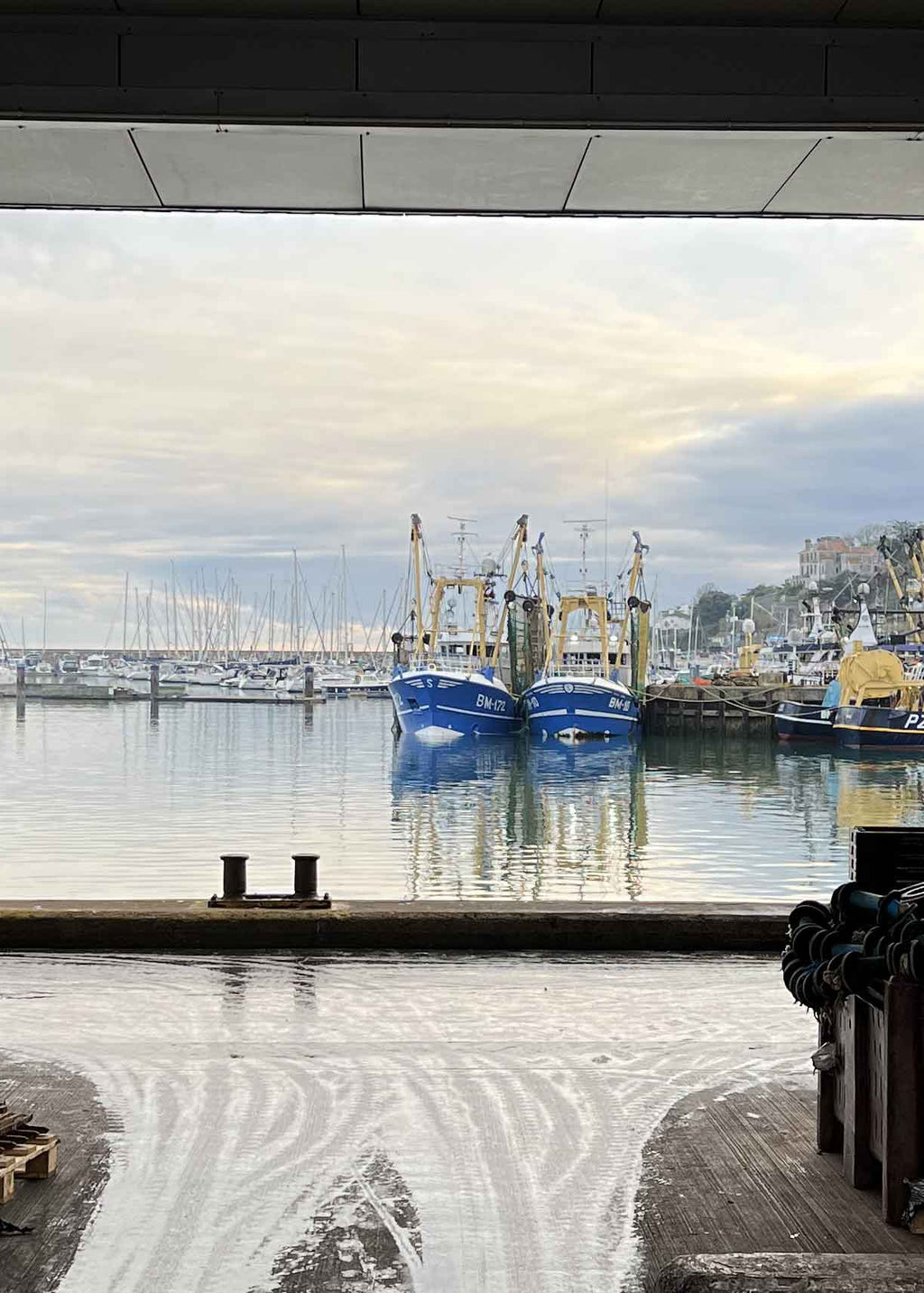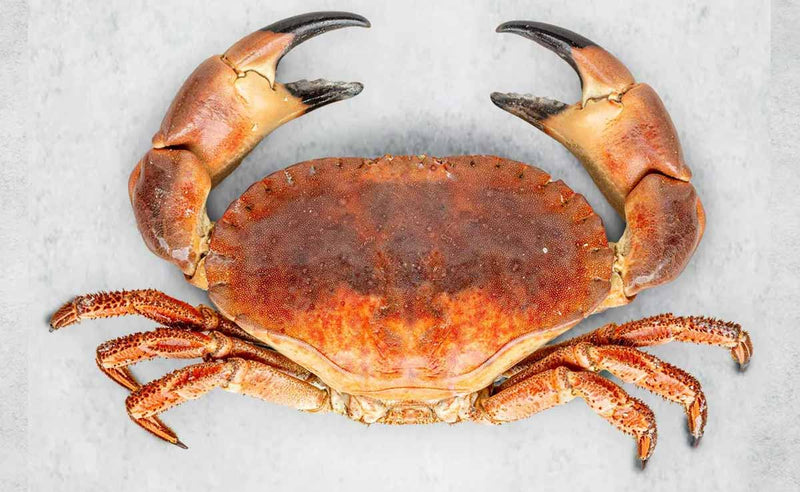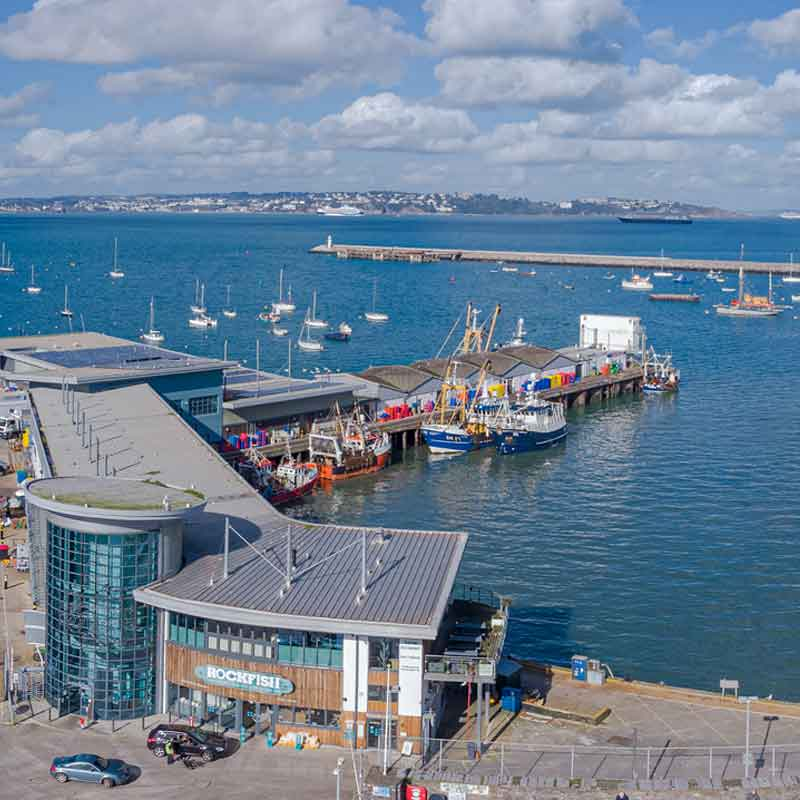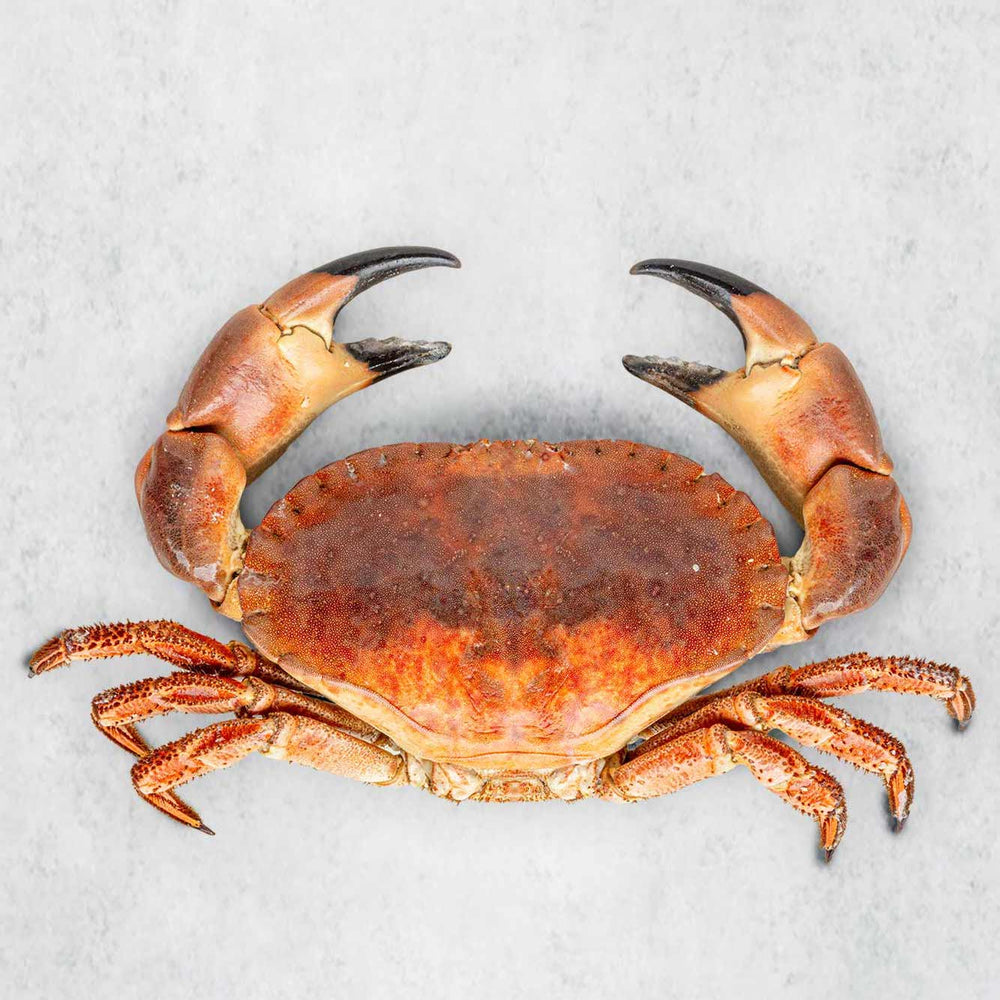Is bottom trawling bad?
Should The UK Ban Bottom Trawling?
Recent headlines have called for a ban on bottom trawling in the UK, citing it as a certified form of environmental destruction. But can it ever be sustainable?
At Rockfish, we hold sustainability, quality and freshness at the heart of all that we do. To us this is do or die, it’s just a fact that a third of global fisheries have surpassed sustainable limits therefore, something has to change. Insanity is doing the same thing over and over and expecting different results – we all have to adapt.
However, our boat, The Rockfisher, is an under-10 metre demersal trawler. Given the recent news, this rightly, may cause you to take pause.
How can we, Rockfish, justify both support for sustainable fishing and own a trawler boat?
To answer that, we need to zoom out.
Scale Matters
Look at any food production done on an industrial scale and you will find environmental issues. Almonds, dairy, palm oil, you name it - where there’s food produced on mass, there’s complexities.
It’s important to think about bottom trawling as another form of food production. As a fishing method it’s responsible for 26% of the world’s marine catch. And like any other major form of food production – when it’s done on an industrial scale, it’s often bad for the environment!
In places like China, Japan or Vigo (Spain’s largest fishing port), massive vessels the size of football pitches, fitted with factory decks, operate around the clock, scraping the seabed for profit with little regard for its recovery. These cause untold destruction.
But just as you wouldn’t tar the organic dairy farmer with the same brush as the industrial factory farm, you can’t leap from this straight to “all trawling is bad”.
Our fishery here in the South West is, by comparison, small, local, exceptionally well-managed and very agile. The Rockfisher is under 10 metres — more like a squash court than a football pitch! We fish with very strict quotas, engine and gear size restrictions and limited days at sea. We target specific species, stay close to shore and therefore use less fuel, and minimise bycatch through shorter tows and careful handling.
Our fishery isn’t just smaller — it’s different in mindset too. It’s artisanal, rooted in community, with immense regulation and designed to adapt. We’re proud to be part of a region that leads the way in sustainable fishing — where Marine Protected Areas are respected, and collaboration between fishers and conservationists is the norm, not the exception.
The Lessons of Lyme Bay
There is no denying the environmental success story of Lyme Bay. In 2008, a 120-square-mile no-bottom-trawl zone was introduced just a stone’s throw from our Lyme Regis restaurant. A decade later, biodiversity within the zone increased by 39%. It proves that if you give the ocean space, it recovers — fast.
That same principle now underpins the new government bans, extending protections to more sensitive habitats around the UK. We support them wholeheartedly — because sustainability isn’t about defending outdated practices. It’s about evolving, together.
Biodiversity, Bycatch & CO₂
Concerns regarding bottom trawling include its impact on seafloor biodiversity, issues of bycatch, and its carbon footprint. Dragging a net along the seabed is going to have an impact, but its severity depends on factors such as trawl frequency, the amount of catch per pass and the recovery rates of affected species.
The impact of trawling on less sensitive habitats, such as muddy and sandy seabeds, is not nearly as severe compared to more fragile habitats like sponge gardens or cold-water coral reefs.
For sedimentary habitats, depletion rates range from 4.7% to 26.1% depending on trawl type, gear depth, and habitat, with otter trawls, like those on The Rockfisher, causing the lowest depletion. While bottom trawling does have an environmental impact, studies show that, across many categories, it has significantly lower impacts than most terrestrial livestock or fed aquaculture. With proper management, bottom trawling can offer a comparatively sustainable way to produce protein.*1
Meanwhile, in Brixham, fishing frequency is rigorously controlled through quotas, engine and gear size limitations and restrictions on days at sea.
Bycatch, the unintended capture of non-targeted organisms, is managed carefully aboard The Rockfisher, with limited impact on undersized species due to shorter tows, ensuring a higher chance of returning fish to the sea alive.
Beyond that we have zero bycatch - our entire catch being utilised through various channels including our restaurants, our Online Seafood Market, or it enters our zero waste system to be blast frozen and sold another day. As part of our tinned seafood project we’re working on developing our own ‘Rockfisher range’, to allow us to preserve a wide range of caught species.
Regarding the carbon argument against trawling, it's true that bottom trawls are among the less fuel-efficient fishing methods. Ultimately, the biggest factor in fuel use is (surprise, surprise)how well the fishery is managed. When fish stocks are healthy and fishing is properly regulated - such as with a catch share system - fishermen don’t need to race to sea. That means fewer trips, lower fuel use and a much smaller environmental footprint.
Efforts are also being made to improve efficiency are ongoing, The Marine Management Organisation - the authority in charge of UK fisheries – are in the process of coordinating grants to install hybrid electric engines into fishing vessels, as well as help improve the efficiency of the current fleet. While aboard The Rockfisher we use recycled plastic trawl doors (the device used to keep the net open in the water) as these decrease the weight of the fishing gear and therefore improve our fuel efficiency.
It's Not The Method, It's The Management
Bottom trawling — like any food production method — comes with trade-offs. But when well-managed, its impact can be low and its benefits high. That’s why 83 bottom-trawl fisheries globally are certified by the Marine Stewardship Council (MSC).
As David Attenborough’s new film Ocean so powerfully reminds us, the ocean is resilient — if we give it the chance. The challenge is not simply to ban, but to balance. To reduce pressure on overexploited stocks. To protect the right habitats. To adapt our methods. And to ensure traceability, seasonality and transparency at every stage.
Technological advancements and effective fisheries management are crucial for mitigating bottom trawling's impacts. As is reducing pressure on overexploited fish stocks. The conclusion then isn’t the kind of headline that grabs attention, e.g."ban bottom trawling now.” But rather, something less punchy, but more pragmatic, such as “with improvements, fisheries can be sustainable.” As consumers, we need to shift our mentality away from “what fish we want to eat” to “what fish is seasonally available right now”.
At Rockfish, we believe the answer isn’t to erase bottom trawling from the picture - but to rethink it. A blanket ban would strip away a vital source of protein, rich in Omega-3 and essential nutrients and impact the livelihoods of thousands who rely on the sea. Yes, bottom trawling has its environmental challenges, but when managed well, its carbon footprint still remains significantly lower than many land-based proteins, including beef. The future lies in doing it better: choosing trusted suppliers, championing well-managed fisheries and supporting those working towards smarter, smaller and more sustainable practices. It’s not about giving up, it’s about getting it right.
That’s what The Rockfisher is all about.
*1 Citation
R Hilborn , et al. August, 2023. “Evaluating the sustainability and environmental impacts of trawling compared to other food production systems Open Access”



